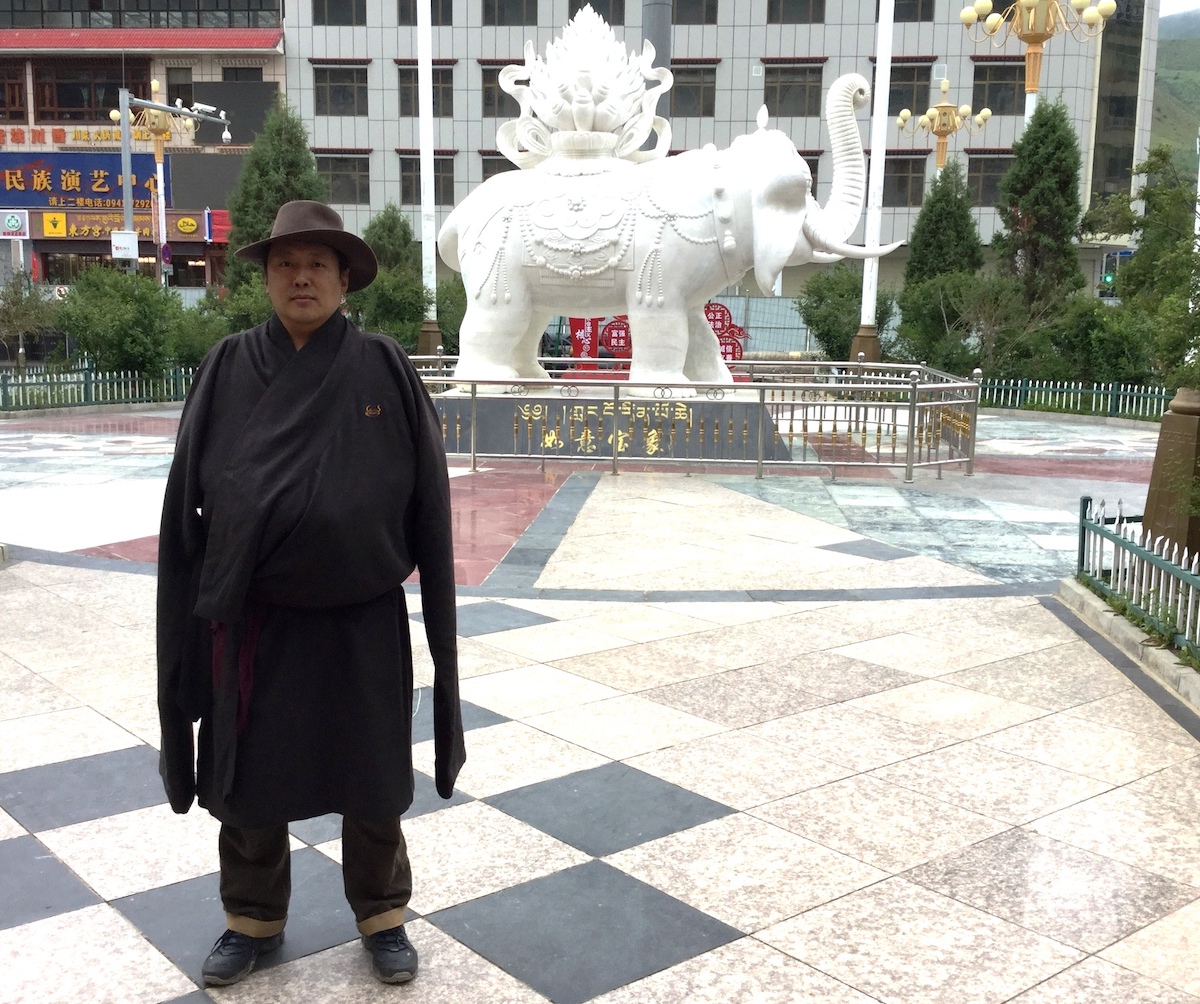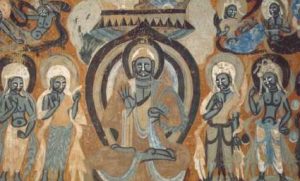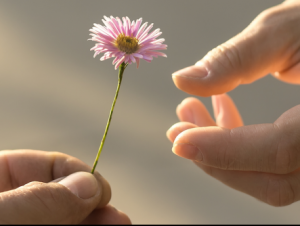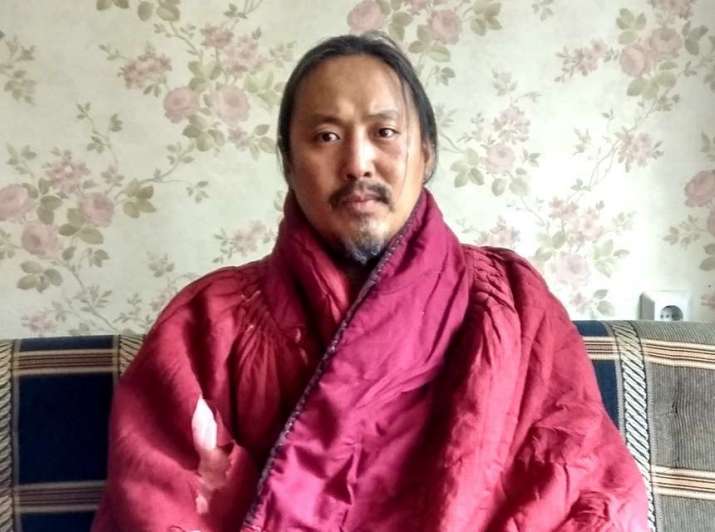
In this third part of his interview with Buddhistdoor Global, the Kalmyk translator and scholar Bem Mitruev discusses the art of translating the Buddha’s wisdom, the qualities of a good translator, and his inspiring hope of seeing the Buddhist canon translated into Russian.
Buddhistdoor Global: What are the challenges of translating the Buddha’s teachings and what are the qualities of a good translator?
Bem Mitruev: The process of translating is basically a process of interpretation. You have to put what you translate in your mind and then try to explain it in your own language or in the target language. Translation is a process of transformation; it means you lose something. You cannot keep all the things you want to translate, otherwise the translation becomes very unnatural. That is one of the problems: if you try to be very faithful to the original text, then the translation becomes very strange in the target language; if you try to translate it very beautifully, then you must lose something along the way. Probably you are not able to convey every nuance, but what we try to do is to stick with the golden middle. The language must be clear, acceptable to native speakers, and it must convey the meaning of the Buddhist teachings. If it is not comprehensible enough, people will not be able to understand it, but if it is only beautiful yet does not convey the underlying ideas and is not an exact translation, it is also useless. A good translation must combine both. It must be pleasant to the native speaker and must transmit all the ideas that are included in the original text. In order to do that, you need two qualities: you need to know the language well and you need to have good knowledge of Buddhist philosophy. You need both qualities in order to be a good translator.
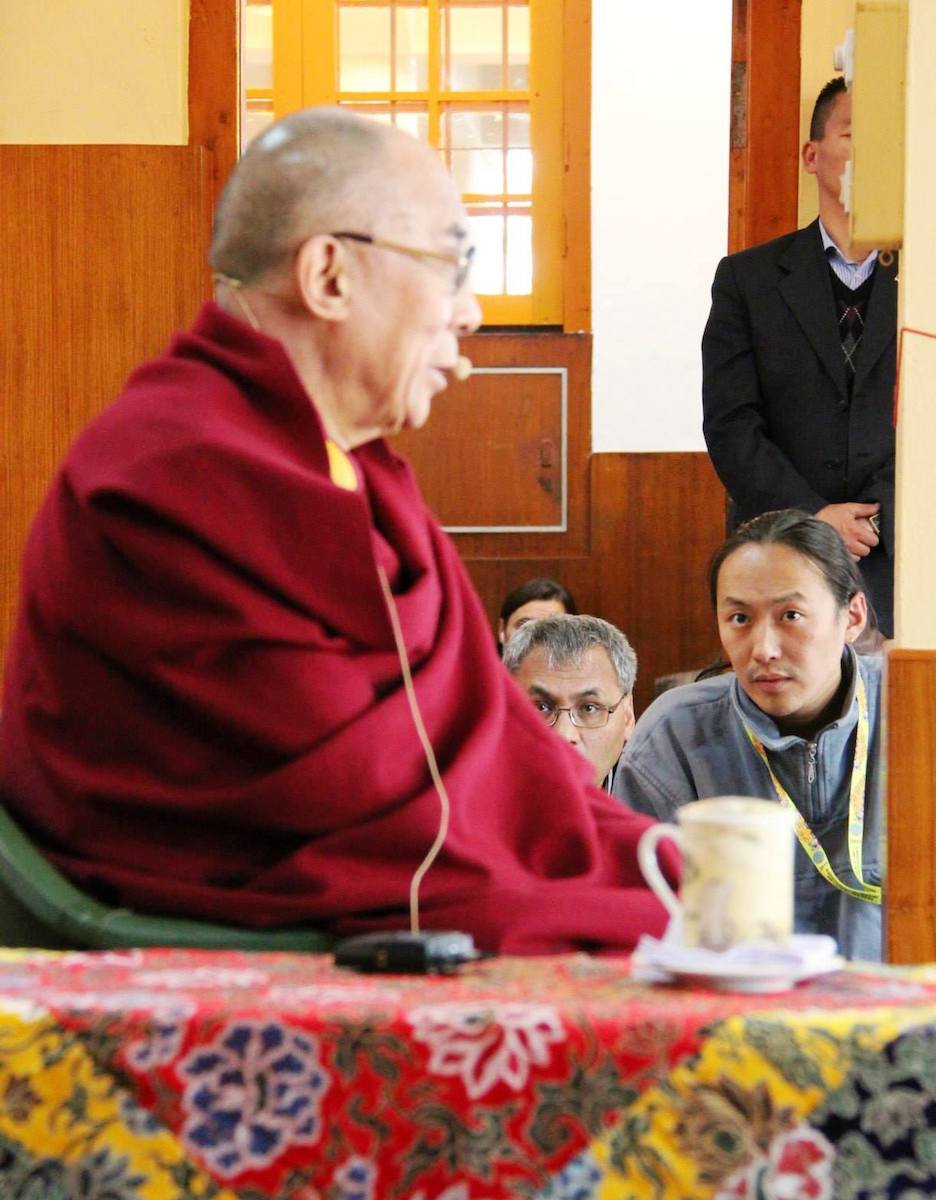
the Dalai Lama. Image courtesy of Bem Mitruev
BDG: A translator of Buddhist teachings connects people and cultures. What is the most inspiring aspect of this role for you?
BM: While translating, the translator becomes a kind of bridge between peoples and cultures. Helping people who are interested in Buddhism obtain knowledge and benefit from the Buddha’s wisdom is the most inspiring thing for me. It allows people to understand; because sometimes there is a language barrier, people do not use the same language and have to rely on translations. It is inspiring that people who would like to gain more knowledge can benefit from the Buddhist teachings through the channel of translation.
BDG: How does it feel to translate the teachings of His Holiness the Dalai Lama?
BM: The main feeling I have while translating His Holiness’ teachings is one of very great responsibility—while doing so I try my best. Of course, it is also a feeling of great happiness to hear His Holiness teach and to be able, to some extent, to serve his great activities by trying to help people understand what he says.
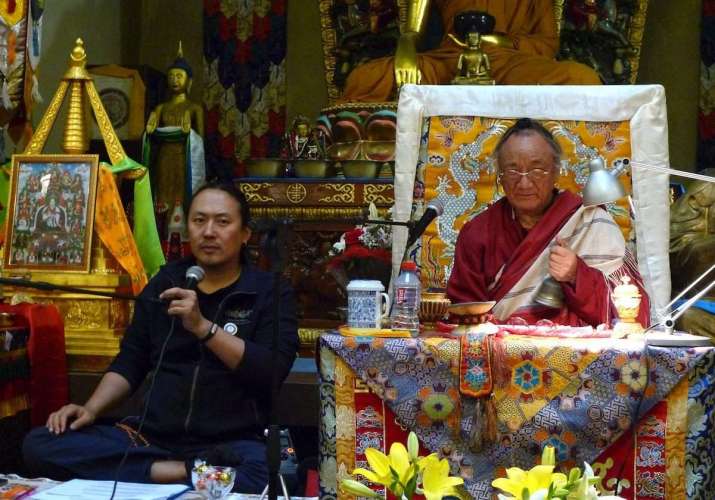
BDG: There is an ongoing discussion about a possible visit by His Holiness the Dalai Lama to Russia. What do you think about it?
BM: I think, of course, that it would be very good if His Holiness can visit Russia, and for the people who would like to meet him to do so. As far as I know, there are many people who would like to see him in person, to listen his teachings and advice, some of whom do not have the opportunity to travel to other countries—especially the elderly or those who are financially or physically unable to travel far to see His Holiness. I hope that he will be able to visit Russia again. We received a letter from the Ministry of Foreign Affairs saying that because of Russia’s relationship with China, it is not possible for the Dalai Lama to visit now, but I hope that one day it will happen.
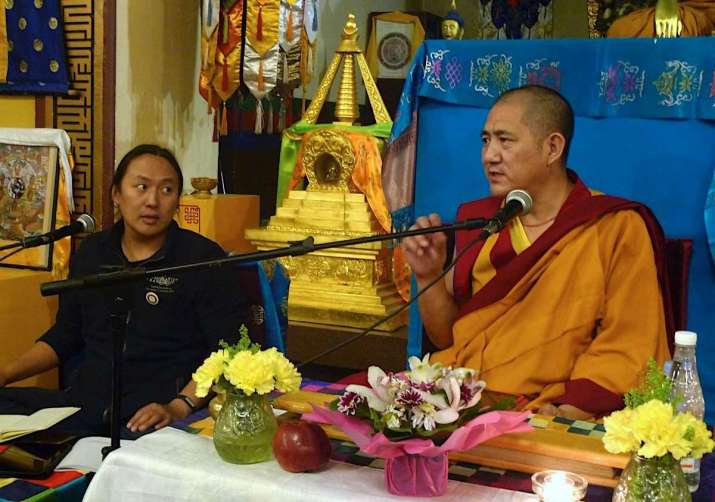
BDG: What advice can you offer young Russians who would like to follow your path of Buddhist scholarship and translation?
BM: First of all, I would like to say that it is very interesting to study languages: the more languages you know, the better for you because it helps to open your mind to different kinds of knowledge. Tibetan and Sanskrit are the main languages of Buddhist culture, and people who would like to study Buddhist philosophy in depth need to learn these languages to some extent. As you know, there is a Buddhist Canon in Tibetan that consists of two parts: the Kangyur and the Tengyur. The canon is translated to different languages. From Sanskrit it was translated into Tibetan and later into Mongolian and Manju. There is also the Buddhist Canon in Chinese, which was translated from Sanskrit. Nowadays there are projects to translate the Buddhist Canon into English. Hopefully one day it will also be translated into Russian for those who would like to study the words of the Buddha and the classical Buddhist commentaries in Russian. In order for this to happen, we need translators who can translate these texts—and there is lot of work to do. As you know, in the Kangyur alone there are more than 100 volumes that need to be translated, and more than 200 volumes in the Tengyur. I hope that more and more people will study Tibetan, Sanskrit and Buddhist philosophy, and will help this work of translating the Buddhist Canon into Russian.
What people need in order to follow this path is patience. It is one of the most important qualities one can have in order to be able to do anything in life—especially over the long term. If you study Tibetan, Sanskrit, and Buddhist philosophy, you need patience and effort.
